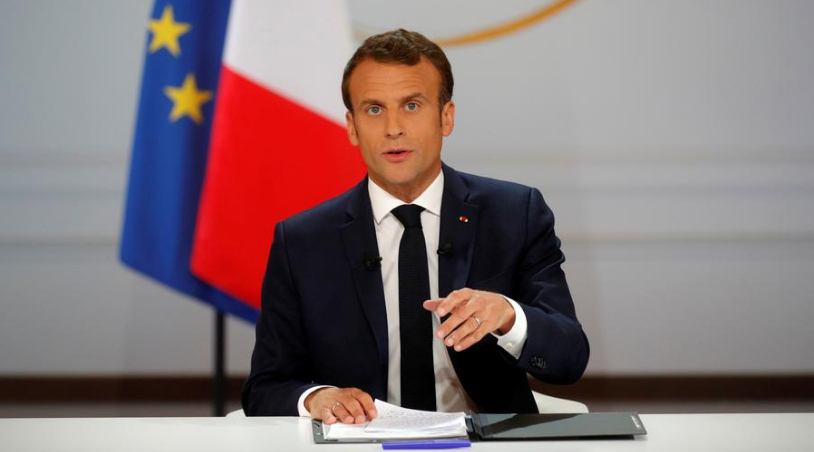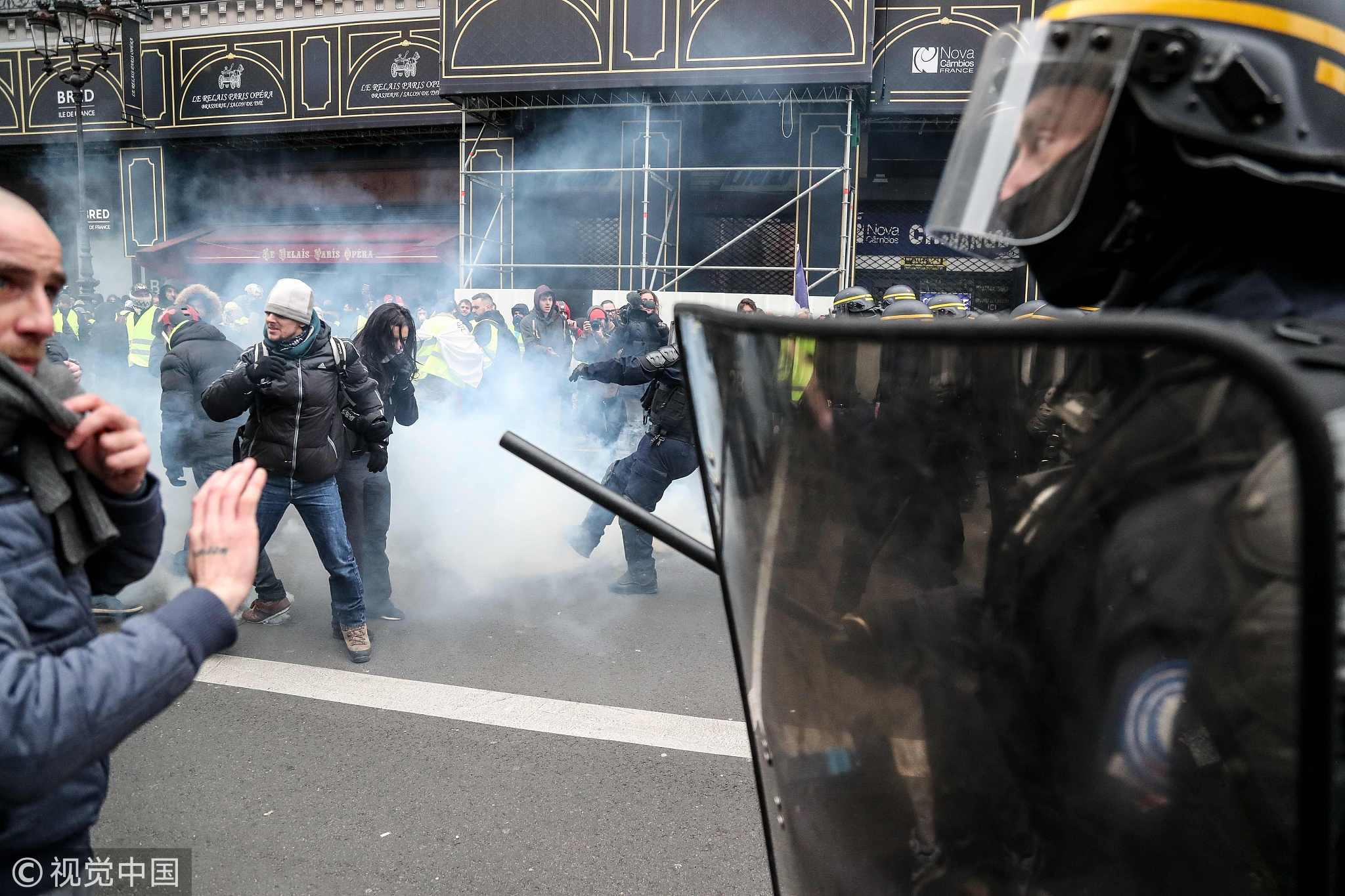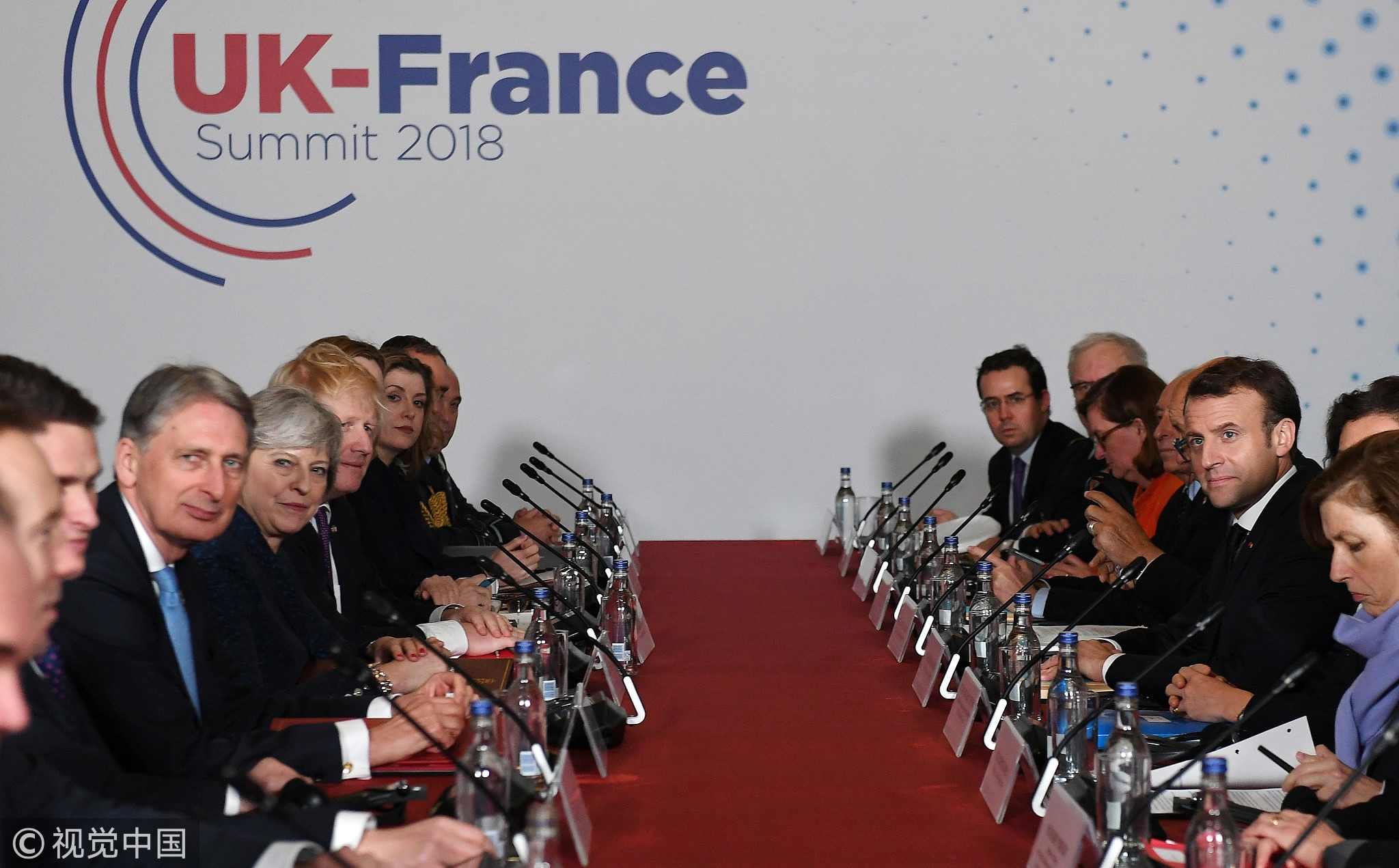
Opinion
09:38, 06-May-2019
A balance must be struck in anti-elitism reforms
Chris Deacon

Editor's note: Chris Deacon is a postgraduate researcher in politics and international relations at the University of London and previously worked as an international commercial lawyer. The article reflects the author's opinion, and not necessarily the views of CGTN.
Late last month, in a speech delayed by the Notre-Dame fire, French President Emmanuel Macron addressed his nation to inform them of his response to the “gilets jaunes” (yellow jackets) protests that have swept France in recent months.
Macron had toured the country to ignite a “grand débat national” – a great national debate – on a variety of issues which concerned ordinary people and, perhaps, played a part in sustaining the nationwide anti-establishment protests.
Part of the reforms announced by the French President included the potential closure of ENA – the École Nationale d'Administration – an elite university based in Paris and Strasbourg which trains the next generation of top French civil servants.
Many who attend this school also go on to hold top political offices, including former presidents. Indeed, Macron himself attended ENA – as did his predecessor François Hollande.
In his speech, Macron stated “if we want to build a society of equal opportunity and national excellence, we must reset the rules for recruitment, careers and access to the upper echelons of the civil service.” He went on to specify that his government would seek to “suppress” ENA, and similar educational establishments.

Protesters clash with police forces during a yellow vest demonstration near the Opera Garnier in Paris, December 15, 2018. /VCG Photo
Protesters clash with police forces during a yellow vest demonstration near the Opera Garnier in Paris, December 15, 2018. /VCG Photo
While many countries have elite universities – such as the Ivy League in the U.S. and Oxbridge in the UK – the ENA system is quite different in its ties to the bureaucracy and all the more elitist, not only in the sense of being a high-caliber institution, but in its graduates' monopoly on the top positions.
The first thing to understand is that ENA requires a great deal of work to gain admission to begin with. Most successful applicants will already have completed a full bachelor's degree at a top university. To be capable of passing its broad range of entrance exams (both written and oral), they will also usually undergo a further preparation course at the elite Sciences Po in Paris, or an alternative “Prép'Ena” institution.
The few that make it through this gauntlet and gain admission will then undergo the intensive ENA program and, upon graduation, be ranked in order of grades across their cohort. This ranking then decides the order in which the students may select their civil service position.
That is to say, if you rank first in the year, you have the first choice as to which ministry or government department you wish to work in. This is where the ENA system's real elitism comes in: It is rank in these exams, and these exams only, that decides who may get these positions. There is no fair and open competition among graduates across France.
It is unsurprising, therefore, that this system has long received criticism. Aside from the elitism issues, there have also been accusations that the system produces a cloned French ruling class, vulnerable to groupthink and lacking in diversity of experience. While the graduates may be some of the most intelligent in the country, for one small subset to dominate the top echelons of the civil service concerns many.
At the same time, however, we must be cautious in how far reforms to elite educational establishments go. Without doubt, the ENA monopoly seems unwise and likely to perpetuate existing policy deficiencies, rather than generating new blood that might reform them.

Theresa May, UK prime minister (Center Left) and Emmanuel Macron, France's president (Center Right), attend a UK-France summit meeting at the military academy in Sandhurst, UK, January 18, 2018. /VCG Photo
Theresa May, UK prime minister (Center Left) and Emmanuel Macron, France's president (Center Right), attend a UK-France summit meeting at the military academy in Sandhurst, UK, January 18, 2018. /VCG Photo
But other nearby countries offer lessons in taking anti-elitism too far. The UK's main civil service recruitment scheme, for example, sets an exceedingly low bar for its applicants. Candidates only need a degree in any subject at the lower second-class grade (the third highest of four grades) from any institution.
Verbal and numerical reasoning tests in the application process have been shunned and replaced with “competency” and “behavioral judgment” tests, which often have no clear correct answer and simply try to match candidates to ambiguous centrally-decided criteria.
These anti-elitist moves could be accused of morphing into anti-ability moves – offering no reward to candidates who work hard to achieve top grades at university and show their ability in the process.
While well-intentioned, this system could result in an entire generation of British civil servants who are not as capable as others who might have sought their jobs, to the detriment of the administration of the country.
France, and other nations considering such reforms, should, therefore, be cautious in how far they take moves against elitism. Monopolies for a very select few cannot be good for the administration of a state, but nor can refusing to reward top candidates.
That is to say, the pool from which candidates may apply must indeed be wide, but the process to decide on those successful should be rigorous and reward hard work and ability.
Such a meritocratic approach balances fairness of opportunity with quality assurance. If we wish to run our countries well, this is the only approach we can take.
(If you want to contribute and have specific expertise, please contact us at opinions@cgtn.com.)

SITEMAP
Copyright © 2018 CGTN. Beijing ICP prepared NO.16065310-3
Copyright © 2018 CGTN. Beijing ICP prepared NO.16065310-3